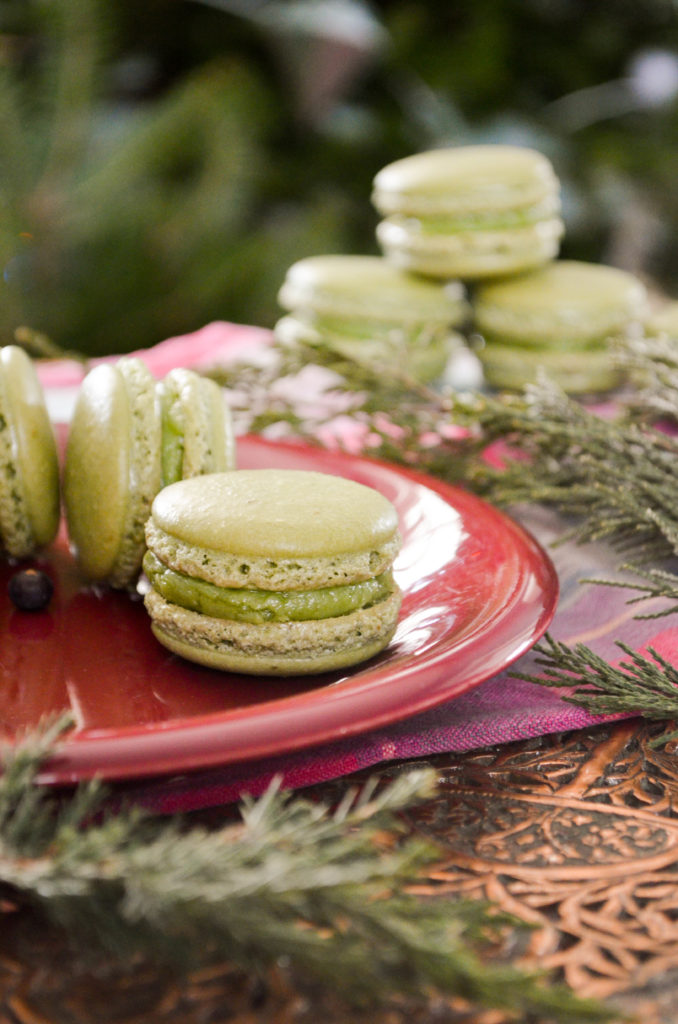
I’m a big fan of weird flavours, especially when it comes to my macarons. I made a more traditional Christmas flavour last month with my Peppermint Macarons, so this month I wanted to try something unusual.
I wanted to provide an unfamiliar but undeniable Christmas flavour. Something that could bring up memories of Christmas morning, even if you’d never tasted anything like it before. I found that flavour in the pungently aromatic juniper berry that is somehow, paradoxically, both bitterly resinous and the sweetest berry you’ve ever tasted. Think about the first time you tried gin and thought it tasted like “Christmas trees” versus how complex and lovely it is now that it’s grown on you: that’s the magic of juniper.
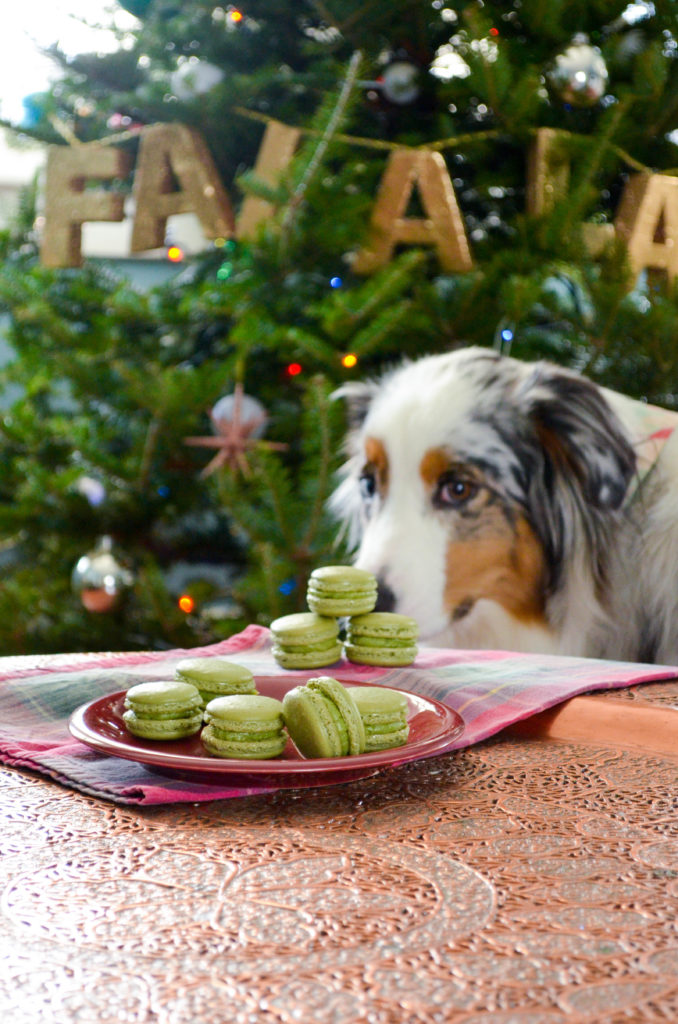
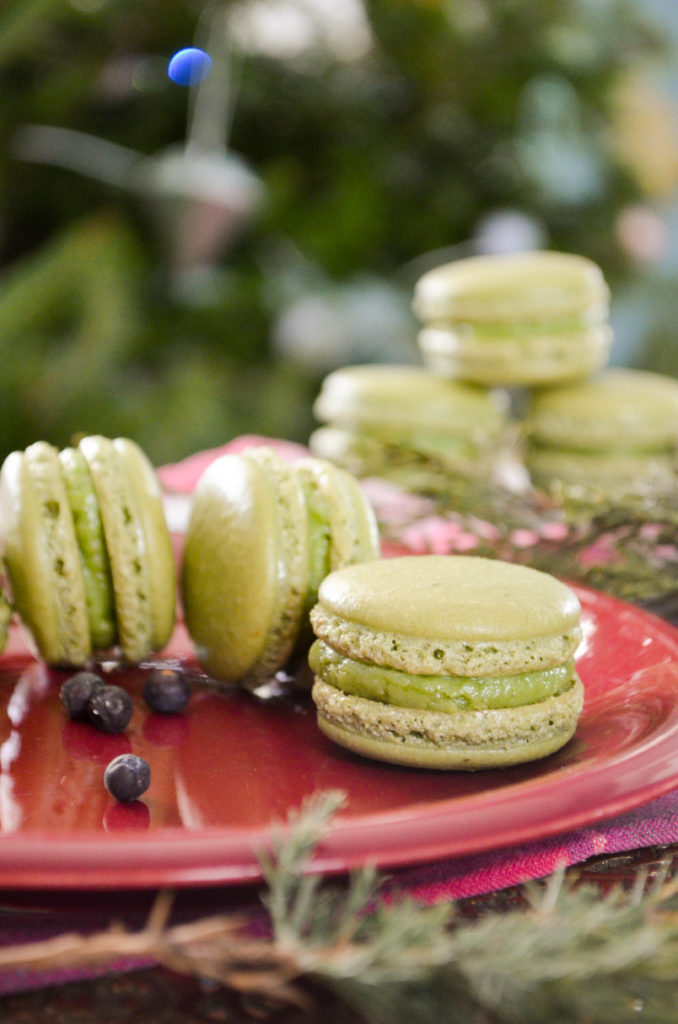
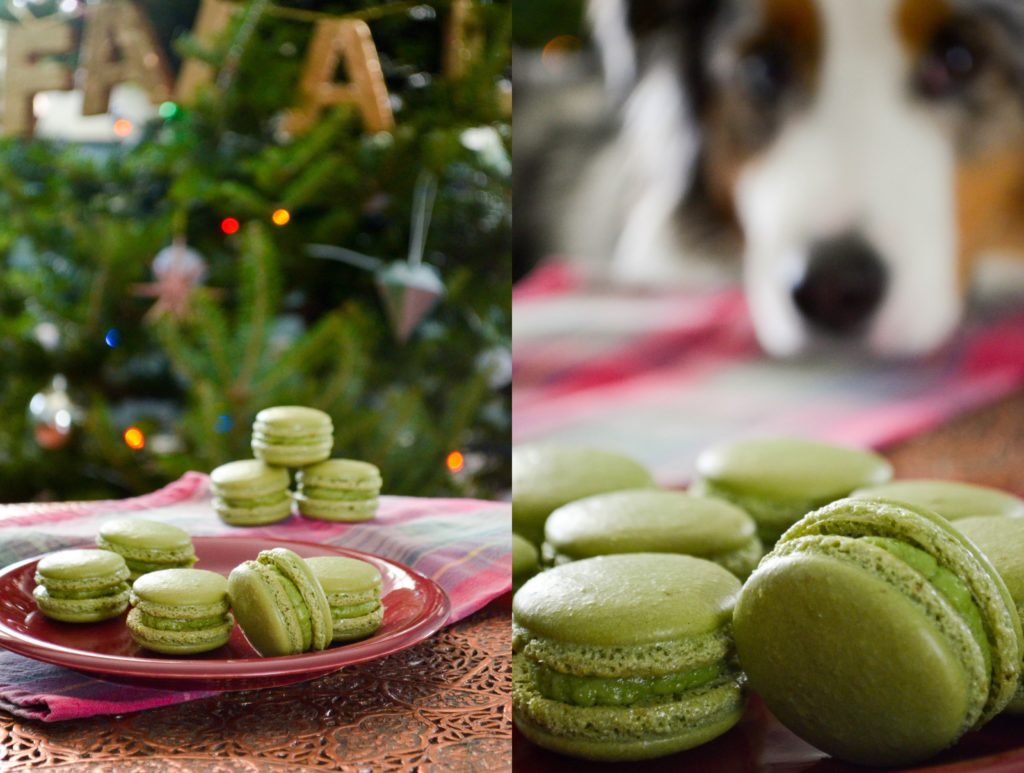
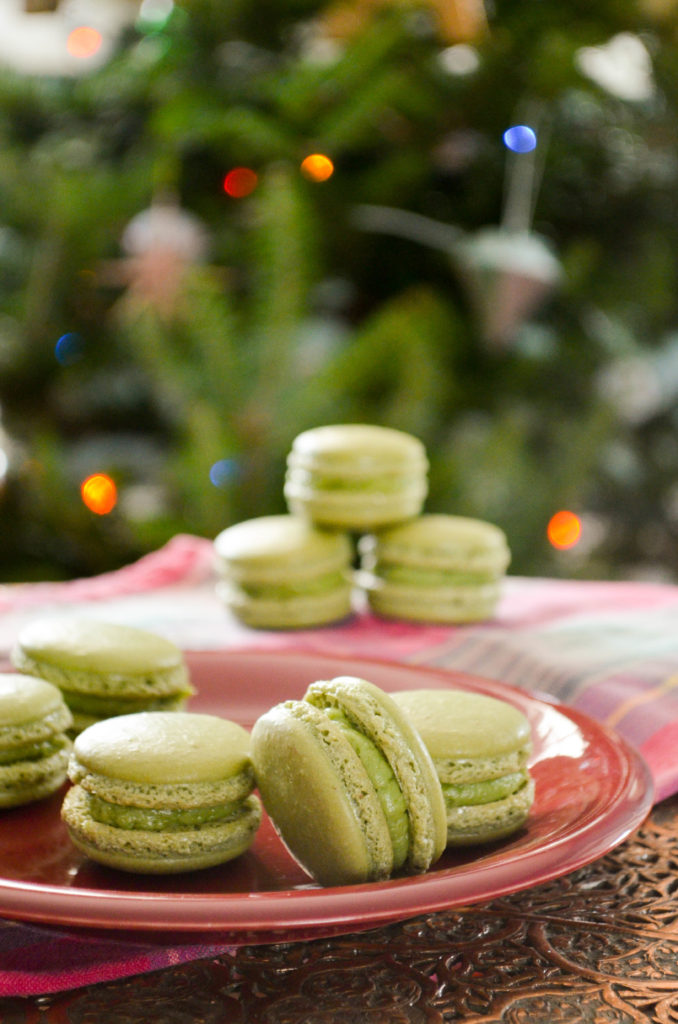
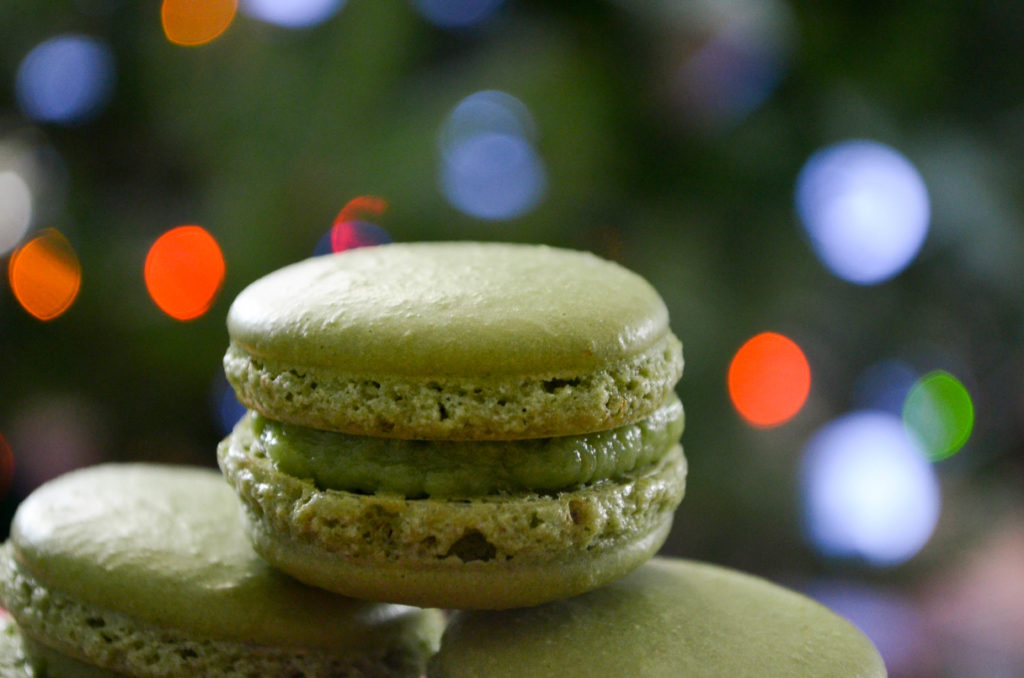
Ingredients
for the macaron shells
- 1 cup ground almonds (as finely ground as you can find)
- 1½ cup icing sugar
- 3 large egg whites, at room temperature
- 1/3 cup sugar
- 2 tsp whole juniper berries (shared with buttercream)
- “juniper green” gel food colouring
for the buttercream filling
- 7 tbsp unsalted butter
- 3½ tbsp milk
- 2 egg yolks
- ¼ cup sugar
- “juniper green” gel food colouring
Method
for the macaron shells
- Prepare your parchment sheets by drawing 1″ circles, ½” apart across the entire sheet (or using silicon baking mats with the circles already printed on them) and placing them on a large flat surface suitable for drying your batter, like a dining table. You will need 2-3 half sheet pan size pieces.
- Sift ground almonds and icing sugar together, twice. Set aside.
- Grind 2 tsp of whole juniper berries in a mortar and pestle. Sift what will into almond and sugar mixture. Keep larger pieces to flavour the buttercream.
- In a large stainless steel mixing bowl, beat egg whites with a hand or stand mixer on high speed until you have a foam with no liquid remaining.
- Slowly add the sugar while continuing to beat the egg whites. Beat on high speed until the egg whites reach stiff peaks. You’ve made meringue!
- Add the gel food colouring and gently beat in.
- Fold your almond and icing sugar mixture into the meringue in two parts.
- Here’s the part that takes practice: it’s time for the macaronnage! With a spatula, spread the batter, with some force, against the side of the bowl. Then scoop it up by running the spatula along the side of the bowl again and try to flip it all over and sort-of lightly smack it back into the bottom of the bowl. Gather the batter up again and repeat 15 times. It takes some time to figure out the best way to do this, don’t be afraid to play around with it. When doing the macaronnage correctly, repeating more than 20 times can result in oily, blotchy macarons, but I’ve found that doing it incorrectly doesn’t count towards this limit. If you are doing it right, the batter will take on a noticeable and somewhat sudden change in consistency, this means you are about half-way to that limit. When finished, the batter should be thickened and drip slowly from the spatula. You will have to pipe it onto your baking sheets/mats and it won’t work if the batter is too runny. This is the technique that defines macarons, this is what makes mastery of them impressive.
- For perfectly round macarons, use a large, 0.4″ plain tip with a pastry bag, or do it the lazy way and cut a corner off a zip top bag for mostly round macarons. Twist (or don’t yet cut) the bag at the tip and place it, tip side down, in a tall glass. Fill with your batter and twist, close or clip the other end to help keep the messy batter moving in the right direction. Pipe the batter into the centre of the circles on your sheets/mats and stop before reaching the edges as the batter will spread out a bit.
- Once finished piping, carefully pick the sheets/mats up and drop them back on to the table from a height of a couple of inches. The theory is that this helps the cookies keep their round shape and form the little bubbles around the bottom (the pied) when you put them in the oven.
- Leave the cookies on the table, uncovered, for 15-30 minutes to dry (or more on a humid day). This is a good time to preheat your oven to 350°F. You will know the macarons are dry when they look smooth and are no longer sticky to the touch.
- Place an oven rack in the centre of your oven. Place a sheet of macarons on two stacked sheet pans (this will stop the bottoms from getting too hot, resulting in cracked macarons) and bake for about 15 minutes. Rotate the pan half way through baking. At this point, if you want to try to keep your cookies light in colour, place a second oven rack directly below the first and move your cookies down to it, then place a third sheet pan above the cookies on the higher rack to protect them from the heat above. It can be hard to tell when the macaron are done. I pull them out when the kitchen smells sweet and the cookies look crisp, have just started to brown, and don’t look blotchy in the middle.
- As soon as the parchment sheet/baking mat is cool enough to handle, take it out of the pan with all the cookies on top and place it on a cooling rack. The macarons will be too sticky to remove from the sheet/mat now; once cooled, they should peel off easily. I usually wait a few minutes for the pans to cool a bit and for the oven to come back to a steady temperature before moving the next sheet to the pans and baking the next round.
for the buttercream
- Warm the butter in a double boiler or in the microwave until it is soft but not melted. Beat until creamy.
- In a small saucepan, bring milk to a boil and the remainder of the 2 tsp of ground juniper berries. Cover and steep for 10 minutes.
- Meanwhile, place the egg yolks in a small bowl and whisk lightly. Add the sugar and beat with a whisk until they are a pale yellow in colour.
- Slowly pour the steeped milk mixture into the egg mixture, whisking constantly.
- Strain this mixture back into the saucepan and discard the juniper.
- Simmer over low heat until the mixture has thickened.
- Now pour the mixture into a clean bowl and beat with a whisk until it has cooled and coats the back of a spoon.
- Add the butter in three parts and whisk until smooth with each addition.
- Add the gel food colouring and whisk through.
- Once everything has cooled, place your buttercream in a zip-top bag, snip the corner off and pipe it onto half of your shells. Then place a similarly sized shell on top and gently press them together.
All photos by me.
